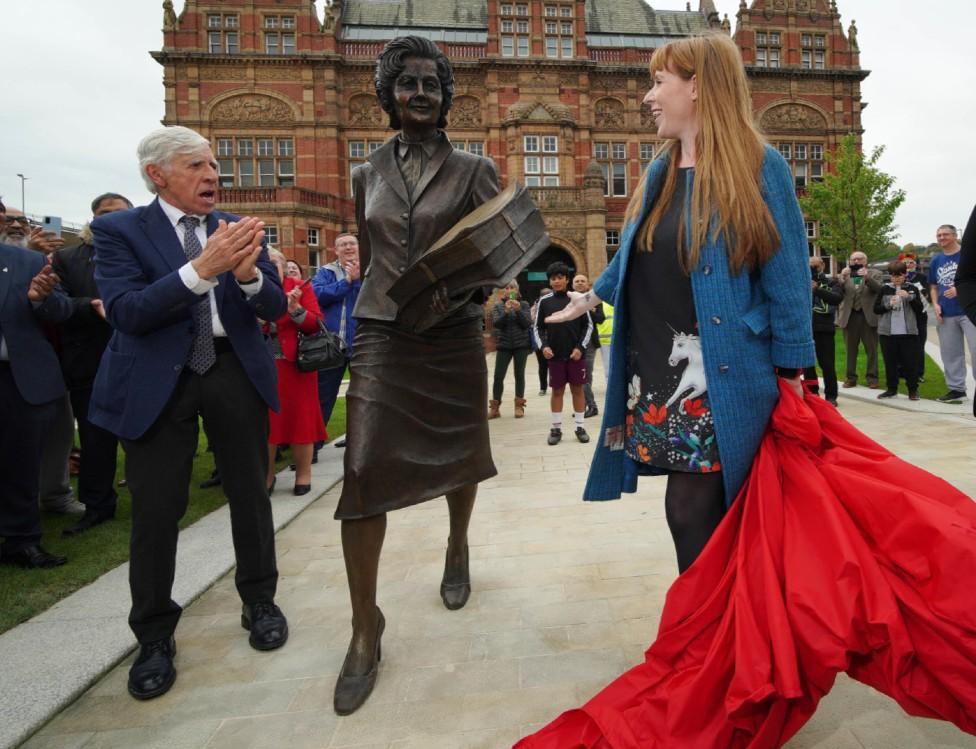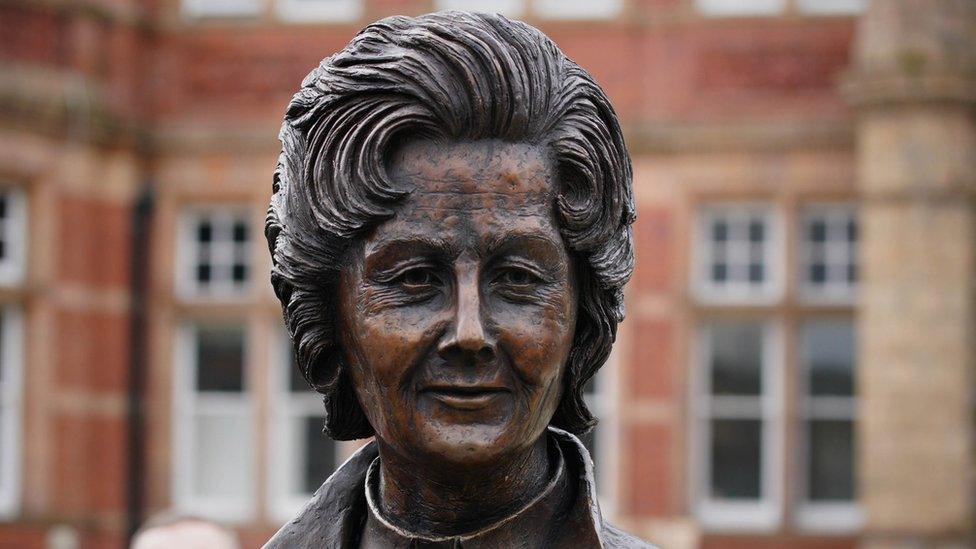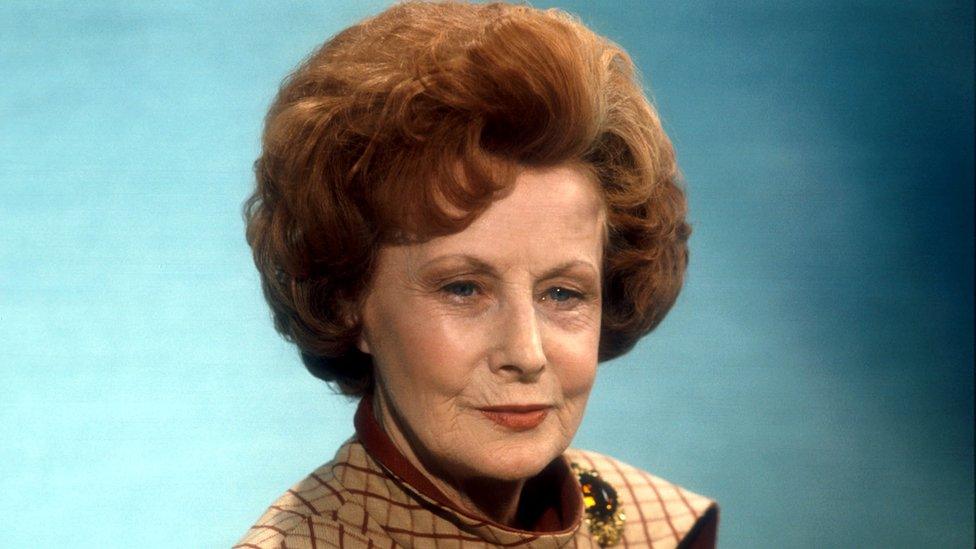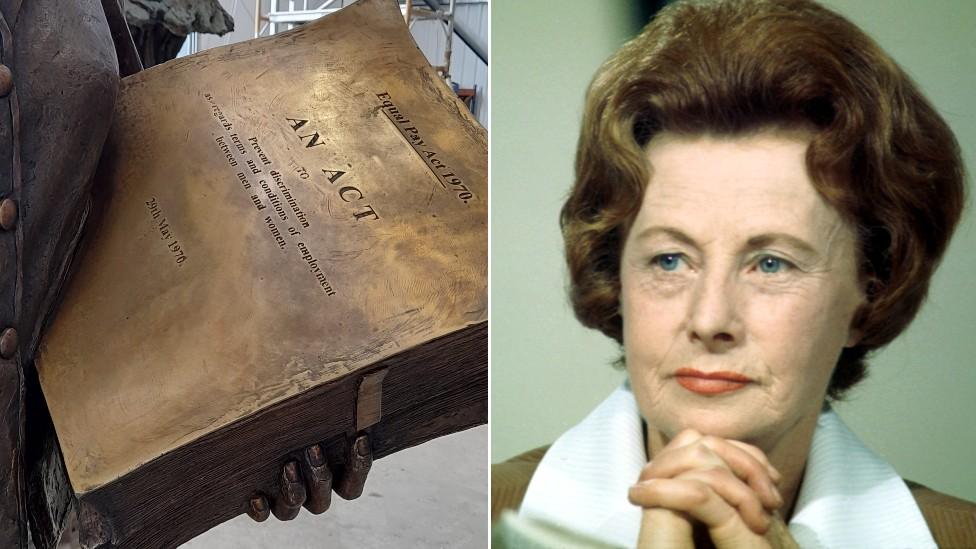Barbara Castle: Angela Rayner promises to always be outspoken
- Published

The deputy Labour leader said she promised to "always be outspoken in Barbara's legacy"
Labour's Angela Rayner has promised to "always be outspoken" like Baroness Barbara Castle while unveiling a statue of the pioneering political firebrand.
Lady Castle, who was an employment and transport minister, was known for her forthright opinions and radical ideas.
The Blackburn MP introduced equal pay law and breathalysers, reformed pensions and made it so mothers directly received child benefit.
Ms Rayner said she was proud to follow on from her fellow "ginger northerner".
Sculpted by Sam Holland, the bronze statue in Jubilee Square depicts Lady Castle striding forth and holding the Equal Pay Act she introduced.

Mr Straw said he owed Lady Castle "almost everything"
Unveiling it alongside Jack Straw, who was Lady Castle's special adviser and served as the town's MP after her, the deputy Labour leader and Ashton-under-Lyne MP said she had been "an absolute treasure to the whole of our United Kingdom".
Ms Rayner, who recently refused to apologise for calling Prime Minister Boris Johnson "scum", said Lady Castle "gave us the cornerstone of what I call our modern society today".
She said she was "incredibly proud to be here as a ginger northerner who promises to always be outspoken in Barbara's legacy".
"It's people like Barbara who inspired me to say what you mean and mean what you say and always be true to the people that elect you," she added.
Mr Straw said he owed Lady Castle, who died in 2002, "almost everything".
He said she had been a "real force of nature", adding: "Barbara was absolutely determined to make her way in what was then a man's world."

Who was Barbara Castle?

Once tipped as a future Prime Minister, Barbara Castle is arguably the most prominent female politician in the history of the Labour party
She represented Blackburn from 1945 to 1979 and joined Harold Wilson's first cabinet in 1964 as minister for overseas aid
She took charge of the Department of Transport two years later, despite not being a driver, and bringing in national speed limits, compulsory seatbelts and breathalysers
In 1970, as secretary of state for employment, she introduced the Equal Pay Act following a landmark strike by 850 female sewing machinists at the Ford factory in Dagenham over wages, a struggle which was retold in the 2010 film Made in Dagenham
She went on to become an MEP in 1979, a position she held for a decade, and entered the House of Lords as Baroness Castle of Blackburn in 1990. She died at the age of 91 in 2002

Why not follow BBC North West on Facebook, external, Twitter, external and Instagram, external? You can also send story ideas to northwest.newsonline@bbc.co.uk
Related topics
- Published21 September 2021

- Published3 September 2010
- Published1 October 2010